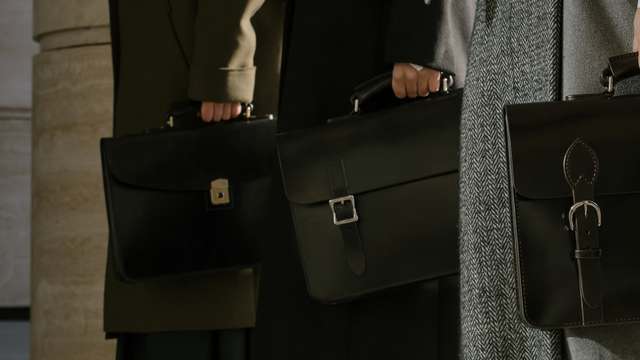The recent outbreak of coronavirus has had devastating effects on the UK’s hotel and hospitality industry. As of 23 March 2020, the UK government has ordered closure of all hotels, hostels, B&Bs, campsites and boarding houses for commercial use, citing the following exceptions:
- where people live in these as interim abodes whilst their primary residence is unavailable they may continue to do so;
- key workers, permanent residents, and non-UK residents who are unable to travel to their country of residence during this period can continue to stay in hotels or similar where required;
- people who are unable to move into a new home due to the current restrictions can also stay at hotels;
- where hotels, hostels, and B&Bs are providing rooms to support homeless and other vulnerable people such as those who cannot safely stay in their home, through arrangements with local authorities and other public bodies, they may remain open; and
- hotels are allowed to host blood donation sessions.
Along with all other industries around the world, the hotel industry has been severely affected by the pandemic and many brand owners have been forced to take extraordinary measures over the last couple of weeks, including the following brands:
- IHG: To protect cash flow, IHG implemented measures to cut costs by approximately $150 million, including reducing salary and incentives, cutting marketing expenditure and deferring consideration of further dividends. Keith Barr, the CEO of IHG, has said: “IHG has a robust business model and the measures we are announcing today to reduce costs and preserve cash give us the capacity to manage the business through this unique environment and to support our owners during this incredibly difficult time.” In addition, to support owners and help manage their cash flows, IHG have launched a package of measures including delaying renovations and relaxing brand standards.
- Best Western: The company will waive marketing fees and halve various franchise fees through May 2020 with payment for some delayed until November. “I am proud that our board of directors and executive team have implemented measures that will provide immediate relief to our hoteliers,” Peter Kwong, chairman of the board, said in a statement.
- Marriott: The company announced last week that it would be taking extreme measures, including reducing staff by tens of thousands and implementing significant pay cuts at a senior level - Marriott CEO Arne Sorenson announced: “I will not be taking any salary for the balance of 2020 and my executive team will be taking a 50% cut in pay.”
- Hilton: Hilton has increased its stock buyback plan by $2 billion, announced relief policies for customers who have to cancel or postpone their stays and withdrew its 2020 guidance on 10 March: "With the coronavirus now spreading beyond China and the Asia Pacific region, and the related increase in travel restrictions and cancellations around the world, we believe that the potential negative impact will be greater than our previous estimate and have decided to withdraw our previously announced guidance. We will provide an update during our first-quarter earnings call, based on the information we have available at the time" – Christopher Nassetta, president and CEO of Hilton. Nassetta also announced that he will forgo his salary for the rest of the year and the company's executive committee will take a 50% salary cut "for the duration of the crisis." Within a number of hotels, it has been reported that Hilton has also permitted hotel rooms to be offered at heavily reduced rates for key workers.
- Hyatt: Hyatt has also withdrawn its 2020 outlook and earnings statement, and has reduced staff and closed various hotels worldwide.
Many hotel owners have been considering financing options, including seeking loans, liaising with lenders about the possibility of deferring payments and modifying loan terms, refinancing existing debt, bringing on board partners (cash investments) and even selling the property. The government has also set up a temporary Coronavirus Business Interruption Loan Scheme to support businesses with access to loans, overdrafts, invoice finance and asset finance of up to £5 million for up to 6 years. Hotel owners will be eligible for the scheme if the hotel’s turnover does not exceed £45 million per annum and the business meets the British Business Bank eligibility criteria (see link below for further information).
Hotel owners should also consider the terms of their hotel management and franchise agreements to ascertain whether any provisions governing hotel performance and expenditure could become relevant during this period, including the following:
- Closure provisions (and business interruption insurance): Many hotel owners have decided to close hotels completely during this period. Often, franchise/management agreements will include provisions to deal with a scenario where the government has forced the hotel to close, to effectively place a freeze or partial freeze on obligations during the period of closure. Owners are often required to maintain policies of business interruption insurance, which may cover franchise/management fees during the period of closure (in certain cases this may also extend to lost revenue and cover ongoing fees).
- Force majeure: The majority of franchise and management agreements will include a “force majeure” provision, under which neither party will be liable for non-performance of the agreement where certain events occur, such as unforeseeable “acts of god”. How a “force majeure event” is defined, i.e. how broadly the provision has been drafted and whether the definition expressly includes or excludes diseases, will be crucial in determining whether this may be relied on. In certain scenarios, force majeure provisions sometimes provide for a termination right if the relevant event continues beyond a certain period. Such clauses could become a saving grace for hotel owners, which will inevitably struggle to continuing to pay franchise/management fees and comply with brand standards during this period.
Employment: Usually, the hotel owner (rather than the hotel operator or brand owner) will employ the hotel employees. This will mean that employment liabilities (including costs of redundancy) will rest with the hotel owner. In order to stay afloat during this time, this will inevitably result in decisions being made to reduce staff; whether the hotel owner will have approval rights in respect of such decisions will depend on the provisions of the management agreement. The government has introduced schemes to assist employers that cannot cover staff costs due to coronavirus, in the attempt to avoid redundancies. Under the Coronavirus Job Retention Scheme, UK employers may be able to access support to continue paying part of their employees’ salary for those employees that would otherwise have been laid off during this crisis; the government has stated that this will run for at least 3 months from 1 March 2020. The process is as follows:
- affected employees must be designated as “furloughed workers,” and notified of this change - changing the status of employees remains subject to existing employment law and, depending on the employment contract, may be subject to negotiation; and
- information must be submitted to HMRC about the employees that have been furloughed and their earnings through the HMRC’s online portal; and
- HMRC will reimburse 80% of furloughed workers wage costs, up to a cap of £2,500 per month.
- Annual budget and operating costs: At a time where keeping hotel expenditure down has never been more crucial, the annual budget agreed at the outset of the year will no longer be appropriate. Many management agreements include mechanisms for amending the annual budget and owners and managers should work together to revise the budget as necessary, liaising with suppliers and implementing cost cutting measures to ensure the survival of the hotel. Expenditure may also need to be increased in certain areas in order to implement additional health and safety measures or to apply with applicable laws, for hotels still open for business to those falling under the exceptions (see above).
- Operator Performance tests: Some hotel management agreements include performance test mechanisms or guarantees, under which the hotel owner has the ability to terminate the agreement if certain financial thresholds are not met. Such provisions could become relevant now as occupancy levels are at an all time low. Conditions of such provisions will vary and should therefore be reviewed. Tests often include a link to the performance of comparator hotels (which will be hit as hard), such that if the test hotel is doing no worse than the comparators, the test will not be failed. In addition, in particular, there may be exceptions in the test for events that are out of the hotel manager’s control.
Links:
- UK Government - Further businesses and premises to close: guidance: https://www.gov.uk/government/publications/guidance-to-employers-and-businesses-about-covid-19/covid-19-support-for-businesses
- Coronavirus Business Interruption Loan Scheme: https://www.british-business-bank.co.uk/ourpartners/coronavirus-business-interruption-loan-scheme-cbils-2/
- Coronavirus Job Retention Scheme: https://www.gov.uk/government/publications/further-businesses-and-premises-to-close/further-businesses-and-premises-to-close-guidance
































































